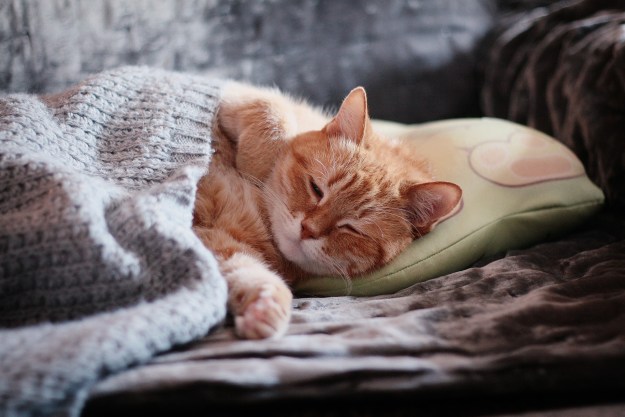Fleas and ticks aren’t only annoying, but they also can lead to serious health issues for your cat. It’s important to choose an effective flea and tick treatment and then to keep up with administering that treatment regularly. The good news is, you have plenty of treatment options, including collars, topical treatments, and sprays and shampoos. So what flea and tick treatment is best? There’s no one simple answer, and each type of treatment and brand of treatment can vary in factors like how easy it is to administer and how effective it is. Instead of just choosing one “best” treatment type, you’ll need to consider the pros and cons of each method when determining which is truly best for your cat’s needs.

Flea and tick collars
Flea and tick collars offer many benefits:
- They’re easy to put on your cat, and you can trim most collars to fit.
- There’s no mess with these collars — though some can feel greasy — and you don’t have to wait for a treatment to dry, like you do with a topical treatment.
- Flea and tick collars tend to be one of the more affordable treatments available. They’re also long lasting. While many topical treatments need to be reapplied every 30 days, a lot of collars last for months.
There are some downsides to consider, though:
- Cats who go outside can potentially get their collar hung up on a branch or other object, so it’s important to choose a collar with a safety-release feature.
- Sometimes collars offer the best protection toward your cat’s head and neck, and that protection may decline toward your cat’s hindquarters.
Topical and oral flea and tick treatments
You can also give your cat topical and oral flea and tick treatments. Topical treatments are highly popular and offer many advantages. Here’s what to consider about them:
- These treatments are easy to apply, though they can make your cat’s hair feel greasy until they fully dry.
- Most topical treatments are safe, but there are some treatments on the market that can be harsh and cause skin reactions in cats. It’s important to carefully follow the directions of any treatment you use.
- Topical treatments typically last for only 30 days, so it’s important to keep up with your application schedule.
- They can be one of the more expensive flea and tick treatment options.
Oral treatments are another option:
- Oral treatments create less mess and, like topical treatments, usually have to be given every 30 days.
- These oral medications don’t carry the same risk of skin irritations and reactions that topical treatments do.
- However, oral medications can be more expensive, and if your cat isn’t cooperative about taking pills, then giving the oral medication can be a hassle.

Flea and tick sprays and shampoos
Flea and tick sprays and shampoos can help address active infections. Here’s what to consider:
- These methods require a more intensive application than topical and oral treatments do.
- Products like flea shampoos typically don’t offer flea prevention, so they really need to be paired with another prevention method. Be sure to speak with your vet to make sure that all the products you’re using can be paired together safely.
- Your cat may not be highly cooperative with these application methods, either, particularly if you need to shampoo and bathe him.
- Keep in mind that these products can be harsh, and they can have strong fumes.
- Be sure to carefully follow all directions of any product that you use. Some products will recommend that you wear gloves and ensure that the area is well ventilated.
Each flea and tick treatment for cats has its own pros and cons, and no one treatment is the best option. When deciding which treatment is right for your cat, it’s important to consider your cat’s lifestyle and unique needs. Your vet can provide you with additional advice and guidance, particularly when it comes to your local tick risk factors and any health issues your cat has that you should consider. You may need to try a few products before you find one that works best for your cat, but once you find that right product, be sure to create a schedule and stick to that schedule to maximize your cat’s protection. By investing in regular flea and tick protection, you’ll be investing in your cat’s health and keeping him happy and comfy.
Editors' Recommendations
- Wondering why cats chirp? Fascinating reasons why your cat chirps at birds (and you)
- How to cat-proof your balcony before the unthinkable happens
- There’s a totally normal reason cats throw up after eating grass – here’s why
- This video of a confused kitty discovering a cat water fountain is adorable
- Why doesn’t my cat meow? Here are 5 reasons why your feline friend is silent



